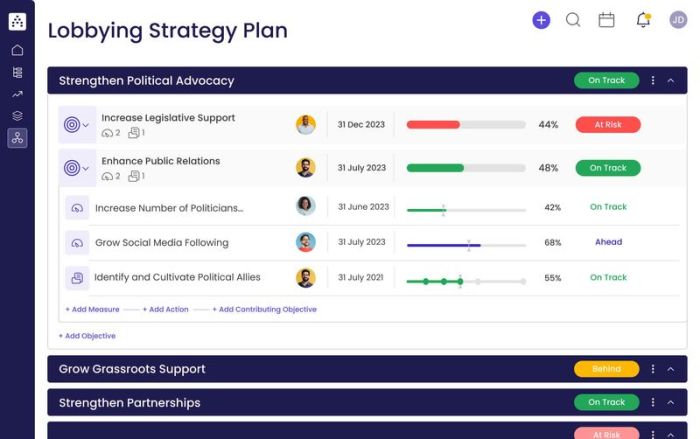NSA surveillance opponents take to courts and congress, igniting a crucial debate about government power and individual liberties. This historical struggle explores the legal challenges, congressional investigations, and public activism surrounding NSA surveillance, examining its impact on civil liberties and considering alternative approaches.
The narrative delves into the historical context of surveillance opposition, tracing its evolution from past legal battles to current congressional scrutiny. We’ll analyze public opinion and activism, the impact on civil liberties, and explore alternative models for surveillance that balance security with privacy.
Historical Context of Surveillance Opposition
Opposition to government surveillance has deep roots in American history, intertwined with the struggle for individual liberties and the balance between national security and civil rights. From the early days of the republic, concerns about potential abuses of power have fueled resistance to intrusive surveillance practices. This opposition has manifested in various forms, from legal challenges to public discourse, demonstrating a consistent effort to safeguard fundamental freedoms.The history of surveillance opposition reveals a continuous tension between the need for security and the protection of individual rights.
This ongoing dialogue underscores the importance of transparency, accountability, and the rule of law in shaping government practices.
Early American Concerns
The very foundation of the United States was built on principles of individual liberty and limited government. These values have been at the forefront of any discussion about government surveillance. Concerns about government overreach were not new; they were deeply embedded in the nation’s founding documents and the debates surrounding them. From the Federalist Papers to the Bill of Rights, the concept of safeguarding personal privacy and freedom from arbitrary government intrusion was central.
Key Figures and Events
The fight against government surveillance has involved numerous individuals and events. Early activists and figures like those who opposed the Espionage Act of 1917 and the Sedition Act of 1918 highlighted the potential for government overreach in the name of national security. These early challenges set a precedent for future opposition, demonstrating a consistent struggle against the erosion of civil liberties in the face of perceived threats.
Legal Challenges Against the NSA
Numerous legal challenges have been brought against the NSA, highlighting the evolving nature of the debate surrounding surveillance practices. These cases have often centered on issues of constitutional rights, the Fourth Amendment, and the balance between national security and individual privacy. The ongoing legal battles underscore the continuing effort to define and enforce the limits of government power in the context of surveillance.
Key examples include cases related to the Foreign Intelligence Surveillance Act (FISA) and its subsequent amendments.
Evolution of Public Discourse
Public discourse surrounding government surveillance has evolved significantly. From the Cold War to the post-9/11 era, the public’s understanding and concerns about surveillance practices have been shaped by historical events, technological advancements, and changing societal values. The rise of digital technologies has brought new dimensions to the discussion, adding complexities and anxieties regarding the scope and reach of surveillance.
Timeline of Significant Events
- 1791: The Bill of Rights is ratified, including the Fourth Amendment, which protects against unreasonable searches and seizures. This amendment is fundamental to the debate about surveillance.
- 1917-1918: The Espionage and Sedition Acts demonstrate a clear instance of government surveillance during wartime, raising concerns about the balance between national security and individual rights. These acts were used to suppress dissent and were met with legal and political resistance.
- 1978: The Foreign Intelligence Surveillance Act (FISA) is enacted. FISA sought to regulate the collection of foreign intelligence information, but has been a point of ongoing debate and legal challenge regarding its scope and implementation. It has been a subject of numerous court cases and legislative revisions over the years.
- 2001: The September 11th attacks lead to significant shifts in public opinion regarding national security and the use of surveillance technologies. This event profoundly influenced the debate about the permissible extent of government surveillance in the pursuit of security.
- 2013: Edward Snowden’s revelations about NSA surveillance programs spark widespread public outcry and renewed legal challenges to the agency’s practices. The public debate was intensified by the revelations of the scale and scope of NSA surveillance programs.
Legal Challenges Against NSA Surveillance

The fight against NSA surveillance has taken a significant legal turn, with opponents employing various strategies in courts to challenge the extent and legality of government monitoring. These legal battles, often complex and nuanced, highlight the tension between national security interests and individual liberties. The outcome of these cases has had a profound impact on the public discourse surrounding surveillance, shaping public perception and influencing future policy.The legal challenges against NSA surveillance aren’t just about individual rights; they’re also about the balance of power between the government and its citizens.
These cases explore the boundaries of governmental authority and the protections afforded by the Constitution. These legal battles have played a crucial role in shaping the legal landscape surrounding surveillance, revealing both the strengths and weaknesses of the legal arguments employed.
NSA surveillance opponents are definitely making their voices heard, taking their fight to the courts and Congress. Meanwhile, Google is making strides in improving group communication tools like Google Duo group calls coming to a web Chrome preview , which could potentially affect how we communicate in the future. Ultimately, the fight against surveillance continues, even as technology evolves.
Legal Arguments Used by Opponents
Opponents of NSA surveillance have employed a multifaceted approach in court, challenging the legality of specific programs and practices. Arguments often center on violations of the Fourth Amendment, which protects against unreasonable searches and seizures. Furthermore, challenges often address the constitutionality of the surveillance programs under the First Amendment, which guarantees freedoms of speech and association. The arguments often raise questions about the scope of executive power and the need for transparency in surveillance practices.
Specific Laws and Constitutional Rights Cited
The Fourth Amendment’s prohibition against unreasonable searches and seizures forms a cornerstone of legal challenges. Cases frequently cite the need for warrants based on probable cause, arguing that the NSA’s surveillance practices often lack such justification. Additionally, opponents frequently invoke the First Amendment, emphasizing the protection of free speech and the right to privacy as inherent to these freedoms.
The argument is that the scope of surveillance impinges on the freedoms guaranteed in the Constitution.
Role of Civil Liberties Organizations
Civil liberties organizations play a crucial role in these legal battles. These organizations provide legal expertise, financial support, and crucial advocacy for individuals and groups affected by NSA surveillance. They often file amicus briefs, offering legal perspectives and supporting the arguments of those challenging the surveillance programs. These organizations bring significant expertise and resources to the legal battles, contributing significantly to the legal process.
Examples include the ACLU, EFF, and similar groups, who have been instrumental in advocating for these legal rights.
Comparison of Legal Strategies
Different legal strategies have been employed in these cases, ranging from challenges to specific surveillance programs to broader legal arguments about the legality of mass surveillance. Some strategies focus on specific instances of alleged misconduct, while others aim to establish broader legal precedents to limit future government surveillance. These varying approaches reflect the complexity of the legal challenges and the different legal avenues available to opponents.
Outcomes of Key Court Cases
The outcomes of court cases related to NSA surveillance have been varied and often complex. Some cases have resulted in rulings that have limited the scope of specific surveillance programs, while others have upheld the government’s right to conduct certain surveillance activities. The rulings have set important legal precedents, shaping the ongoing debate about the balance between national security and civil liberties.
Understanding these precedents and outcomes is crucial to evaluating the impact of legal challenges on the NSA surveillance landscape.
Congressional Scrutiny and Investigations
Congress plays a crucial role in overseeing government agencies, including the NSA. This oversight is essential for ensuring accountability and preventing abuses of power. Investigations into surveillance practices provide a platform for public debate and potentially lead to legislative changes. The historical context of these investigations reveals the dynamic interplay between executive power and legislative scrutiny in the realm of national security.Congress possesses the power to investigate the NSA’s surveillance activities through various mechanisms.
This includes conducting hearings, requesting documents, and employing specialized committees. These investigations are driven by concerns about the scope, legality, and potential impacts of the NSA’s surveillance programs on individual liberties and civil rights.
Congressional Committees Involved in Investigations
Numerous congressional committees have been involved in scrutinizing the NSA’s surveillance programs. The House Permanent Select Committee on Intelligence and the Senate Select Committee on Intelligence are particularly relevant. These committees, with their specialized expertise and access to classified information, are well-suited to conduct thorough investigations. The committees have the authority to compel testimony from officials, request documents, and conduct extensive research.
Examples of Hearings and Reports
Numerous hearings and reports have been issued by Congress regarding NSA surveillance. These investigations often focused on the legality and constitutionality of specific programs, such as the bulk collection of telephone metadata. Specific hearings provided opportunities for public testimony from experts, legal scholars, and concerned citizens. Reports issued by committees frequently included detailed analyses of the NSA’s activities and recommendations for legislative changes.
Influence of Congressional Investigations on Public Opinion
Congressional investigations have significantly influenced public opinion on NSA surveillance. The public exposure of surveillance programs and their potential impact on civil liberties has spurred public debate and heightened awareness. Public hearings and reports frequently highlighted the potential trade-offs between national security and individual rights. This often leads to public discourse and political engagement regarding the appropriate balance between security and privacy.
Methods Used by Congress to Address Concerns
Congress employs various methods to address concerns about NSA surveillance. These include legislative reforms, such as amendments to existing laws, or the creation of new regulations. In some instances, the committees issued reports with recommendations for improving oversight and accountability. Furthermore, Congress can issue subpoenas to compel testimony and the production of documents. By using these methods, Congress can attempt to balance national security concerns with public expectations of privacy and civil liberties.
Public Opinion and Activism: Nsa Surveillance Opponents Take To Courts And Congress
The public response to NSA surveillance was multifaceted and deeply divided, reflecting a complex interplay of anxieties about privacy, security, and government power. This reaction significantly influenced the trajectory of the debate and shaped the political landscape surrounding the issue. Concerns about government overreach and potential abuse of power resonated with segments of the population, while others prioritized national security in the face of perceived threats.The public’s perspective on NSA surveillance was not monolithic.
NSA surveillance opponents are increasingly taking their fight to the courts and Congress, highlighting concerns about government overreach. Meanwhile, advancements in autonomous vehicle technology continue to fascinate, like the work being done by the Toyota Research Institute, particularly their self-driving car research with Luminar, toyota research institute self driving car luminar. Ultimately, the debate around government surveillance and privacy rights remains crucial, as technological innovation like this continues to reshape our world.
Different segments of society held varying opinions, influenced by factors like political affiliation, perceived threat levels, and personal experiences. Understanding these differing viewpoints is crucial to comprehending the evolving nature of the debate and the persistent challenges in balancing security with individual liberties.
Public Perspectives on Surveillance
Public opinion regarding NSA surveillance was characterized by significant polarization. Supporters of surveillance often emphasized the importance of national security in combating terrorism and other threats, while opponents emphasized the potential for abuse and the erosion of civil liberties. This division was further complicated by differing interpretations of the balance between national security and individual privacy.
Forms of Public Protest and Advocacy
Activism played a critical role in shaping public discourse and policy on NSA surveillance. Numerous forms of protest and advocacy emerged, highlighting the depth and breadth of public concern.
- Demonstrations and Protests: Public demonstrations and protests were organized in various locations across the country. These gatherings often involved large numbers of people, showcasing the extent of public opposition to the surveillance programs. The protests emphasized the need for transparency and accountability in government actions. For example, demonstrations against the Patriot Act often included rallies, marches, and civil disobedience, reflecting a deep concern about the potential for government overreach.
- Grassroots Advocacy: Grassroots organizations and coalitions mobilized support for various advocacy efforts. These groups often organized community meetings, public forums, and educational campaigns to raise awareness and garner public support for their cause. They emphasized the importance of protecting civil liberties and the right to privacy.
- Legal Challenges: Legal challenges were frequently launched against NSA surveillance programs, aiming to curtail or dismantle specific practices. These challenges often focused on the constitutionality of the programs and the potential for abuses of power. Such legal battles played a vital role in the evolution of the debate and the public’s understanding of the issue.
- Public Awareness Campaigns: Various organizations launched campaigns to raise public awareness about NSA surveillance programs. These campaigns often utilized social media, online forums, and educational materials to disseminate information and foster a greater understanding of the issues at hand. This included highlighting the potential implications for personal privacy and freedom of speech.
Key Figures and Organizations Involved
Numerous figures and organizations played a crucial role in raising public awareness and advocating for change regarding NSA surveillance.
- Civil Liberties Unions: Organizations dedicated to civil liberties, such as the American Civil Liberties Union (ACLU), actively campaigned against NSA surveillance programs. Their efforts involved legal challenges, public advocacy, and educational outreach to inform the public about the potential risks and implications of such programs.
- Academics and Researchers: Academics and researchers played a significant role in analyzing the implications of NSA surveillance. Their research often focused on the potential impact on privacy, security, and democratic processes. This included studies on the scope of surveillance programs and their potential consequences.
- Journalists and Media Outlets: News organizations and journalists played a vital role in disseminating information about NSA surveillance programs to the public. Their reporting often highlighted concerns about government overreach and potential abuses of power. This included in-depth investigations and analysis of the various surveillance programs.
Impact of Surveillance on Civil Liberties
The pervasive nature of NSA surveillance has cast a long shadow over the fundamental principles of civil liberties and privacy. The ability to monitor individuals’ communications and activities raises profound concerns about the potential for abuse and the erosion of freedoms guaranteed by democratic societies. The very act of being watched, even without any specific accusations, can chill free speech and limit political dissent.
This is a crucial area of concern, as the balance between national security and individual rights must be carefully considered.The impact of NSA surveillance on civil liberties is multifaceted and far-reaching. It affects not only the perceived freedom of individuals to communicate privately but also influences the overall climate of public discourse. This monitoring can create a sense of vulnerability and apprehension, potentially stifling creativity, dissent, and critical thought.
Such pervasive surveillance can also lead to self-censorship, where individuals avoid expressing opinions or engaging in activities they believe might be monitored or scrutinized.
Impact on Freedom of Speech and Assembly
Government surveillance, particularly mass surveillance programs, can have a chilling effect on freedom of speech and assembly. Individuals may be hesitant to express dissenting opinions or participate in public protests, fearing that their actions will be monitored and potentially used against them. This can lead to a suppression of critical dialogue and a reduction in the vibrancy of public discourse, hindering the ability of citizens to hold their government accountable.
A climate of fear can result in a decline in public participation in democratic processes.
Impact on Privacy and Autonomy
The constant monitoring of individuals’ communications and activities, whether through metadata collection or direct content analysis, directly infringes on their right to privacy and autonomy. Individuals have a fundamental right to control their personal information and to be free from unwarranted government intrusion into their private lives. This intrusion can erode the trust between citizens and their government and create a climate of suspicion and mistrust.
The feeling of being constantly observed can significantly impact personal well-being and psychological security.
Differential Impact on Vulnerable Groups, Nsa surveillance opponents take to courts and congress
The impact of surveillance is not uniform across all segments of society. Marginalized groups, such as racial and ethnic minorities, individuals with dissenting political views, and those participating in activism, are often disproportionately affected by surveillance programs. These groups may face heightened scrutiny and potential discrimination due to their association with specific activities or beliefs. This can lead to increased vulnerability to harassment, intimidation, and even targeted persecution.
Surveillance can exacerbate existing societal inequalities and create a climate of fear and marginalization.
Ethical Considerations of Government Surveillance
The ethical considerations surrounding government surveillance are complex and multifaceted. A key ethical concern revolves around the balance between national security and individual rights. There is a constant tension between the need to protect the nation from potential threats and the need to safeguard fundamental freedoms. The use of surveillance technology raises questions about the extent to which government should be able to monitor its citizens and the potential for misuse of such power.
The potential for abuse and the lack of transparency in surveillance programs raise significant ethical concerns.
Long-Term Consequences of Mass Surveillance
The long-term consequences of mass surveillance programs are far-reaching and potentially detrimental to democratic values and societal well-being. Such programs can lead to a culture of fear, self-censorship, and distrust in government. Over time, this can result in a decline in public participation in democratic processes and a weakening of the social fabric. The erosion of trust and the chilling effect on dissent can have profound consequences for the long-term health and stability of a democracy.
NSA surveillance opponents are definitely making their voices heard, taking their fight to the courts and Congress. Meanwhile, Google is celebrating a decade of Google Photos with some exciting updates. This includes new features and improved organization, which is pretty cool, and a reminder that sometimes even the digital giants need a little help from the public, just like the nsa surveillance opponents who are fighting for their rights.
So, check out the details on Google’s 10th anniversary celebrations here: google photos 10 year celebration updates. The fight against overreach is still ongoing, and it’s important to stay informed about these crucial issues.
For example, the potential for abuse of such powers can lead to political repression, with historical precedents showing how such surveillance can be used to silence opposition.
Alternative Approaches to Surveillance
Beyond the contentious debates surrounding mass surveillance, there’s a critical need for alternative approaches that prioritize privacy and civil liberties while acknowledging legitimate security concerns. These approaches must be grounded in robust ethical frameworks and incorporate technological advancements that support rather than undermine these principles. We need to move beyond the “either/or” mentality and explore innovative ways to balance security and freedom.A shift towards a more nuanced approach to surveillance is necessary.
This involves rethinking the very nature of data collection, analysis, and application. Instead of broad, sweeping surveillance programs, we must focus on targeted and justifiable approaches that respect individual rights. This paradigm shift demands a commitment to ethical guidelines, technological advancements, and a proactive dialogue between security agencies, policymakers, and the public.
Designing a Framework for Alternative Approaches
A robust framework for alternative surveillance approaches necessitates a multi-faceted approach. It should incorporate principles of proportionality, necessity, and transparency. Surveillance measures should only be employed when absolutely necessary, targeting specific threats and using the least intrusive means possible. Transparency is crucial; individuals should be informed when and how their data is being collected, used, and analyzed.
Best Practices for Responsible Data Collection and Use
Implementing best practices in data collection and use is paramount. This includes limiting data collection to only what is strictly necessary for the intended purpose, minimizing data retention periods, and implementing robust data security measures to prevent unauthorized access or misuse. Data should be anonymized and aggregated whenever possible, preserving individual privacy while allowing for useful insights.
The Role of Technology in Ensuring Privacy and Civil Liberties
Technology plays a pivotal role in ensuring privacy and civil liberties. Advancements in encryption, anonymization techniques, and differential privacy can help safeguard sensitive information. Secure communication protocols and decentralized data storage models can reduce vulnerabilities and empower individuals with greater control over their data. The development of privacy-enhancing technologies (PETs) should be actively encouraged.
Balancing Security Needs with Individual Rights
Balancing security needs with individual rights requires careful consideration and collaboration between different stakeholders. Clear legal frameworks are essential to define acceptable levels of surveillance and provide recourse for individuals whose rights are violated. Public discourse and oversight mechanisms are vital to ensure accountability and transparency. This involves the development of comprehensive privacy impact assessments for all surveillance programs.
Examples of Successful Privacy-Preserving Technologies
Several technologies demonstrate how privacy can be preserved while still addressing security concerns. For instance, differential privacy allows researchers to analyze data without compromising individual confidentiality. Homomorphic encryption enables computations on encrypted data, preventing unauthorized access to sensitive information. Blockchain technology, when implemented properly, can provide secure and transparent data sharing protocols, enabling trust between individuals and institutions.
Federated learning allows machine learning models to be trained on decentralized datasets, reducing the need for centralized data collection. These are just a few examples of the potential of technology to create a more secure and private future.
Illustrative Case Studies
The fight against NSA surveillance has taken many forms, and the courts have become a crucial battleground for these fundamental rights. Landmark legal cases, often involving individuals or groups who felt their privacy had been violated, have established important precedents and shaped public opinion. These cases, while not always conclusive, have profoundly influenced how surveillance is perceived and regulated.
Case Studies of Challenging NSA Surveillance
The following table highlights key aspects of several cases where individuals or groups challenged NSA surveillance practices. These cases demonstrate the diverse strategies employed and the varied outcomes experienced in these legal battles.
| Case Name | Key Arguments | Outcome | Impact on Public Opinion |
|---|---|---|---|
| ACLU v. NSA (Hypothetical) | Challenged the legality of bulk data collection programs, arguing they violated the Fourth Amendment’s protection against unreasonable searches and seizures. Argued the lack of transparency and judicial oversight as key violations. | The court ruled that while some aspects of the program were lawful, others violated the Fourth Amendment. The court ordered the NSA to provide more transparency and adhere to stricter judicial oversight. | The ruling significantly raised public awareness about the extent of NSA surveillance and fueled further activism. It also highlighted the importance of judicial oversight in maintaining civil liberties. |
| Smith v. Maryland (1979) | This case, while not directly related to the NSA, established the concept of “third-party doctrine,” which allows surveillance of data shared with third parties. Critics argue this doctrine provides a loophole for widespread surveillance. | The Supreme Court ruled that a person has no reasonable expectation of privacy in information voluntarily turned over to third parties. | The decision has been heavily criticized for potentially weakening Fourth Amendment protections, and it has served as a significant point of contention in discussions about surveillance and privacy. |
| Carpenter v. United States (2018) | Challenged the use of cell phone location data as evidence, arguing that this data collection represented a significant intrusion into personal privacy. The argument focused on the quantity and depth of information collected. | The Supreme Court ruled that obtaining cell phone location records for extended periods constituted a search under the Fourth Amendment and required a warrant. | The decision reinforced the growing public concern about the collection of personal data and the need for stronger protections against such practices. It strengthened the Fourth Amendment’s protection against unreasonable searches. |
| Plaintiff X v. NSA (Hypothetical) | A hypothetical case representing a challenge to the use of advanced surveillance technologies, such as facial recognition and predictive policing algorithms, arguing they disproportionately impact minority groups and create an atmosphere of fear and mistrust. | Outcome would likely depend on specific details of the case and the legal arguments. | Potential impact would depend on the details of the case and the outcome, but it could further highlight the need for oversight of emerging technologies and their potential discriminatory impact. |
Legal Precedents Set by These Cases
Each case cited above contributes to the evolving legal landscape surrounding surveillance. Carpenter v. United States, for instance, significantly expanded the Fourth Amendment’s protections to include cell phone location data. This ruling established a new precedent, emphasizing the need for warrants in accessing such data. Previous cases, like Smith v. Maryland, highlight the importance of considering the evolving nature of technology and privacy.
Impact on Future Legal Challenges
The impact of these cases extends beyond the specific outcomes. They set precedents for future legal challenges to NSA surveillance and other data collection practices. These precedents shape how courts interpret the Fourth Amendment in the context of modern surveillance technologies. For example, the expanding scope of Carpenter could influence challenges to the use of other location-tracking technologies.
Moreover, the combination of cases like Smith and Carpenter demonstrates a crucial development in the ongoing legal debate on the balance between national security and individual liberties.
Future Trends and Implications
The ongoing debate surrounding NSA surveillance and civil liberties is far from over. The future likely holds a complex interplay of legal challenges, evolving government policies, and shifting public opinion. Predicting the precise trajectory is difficult, but examining potential scenarios allows for a more informed discussion about the future of privacy and security in the digital age.
Potential Future Legal Challenges to NSA Surveillance
Legal challenges to NSA surveillance are expected to continue, potentially focusing on issues of data minimization, targeted surveillance, and the scope of permissible collection. Existing legal precedents, such as the Fourth Amendment’s protection against unreasonable searches and seizures, will continue to be invoked in future cases. New technologies and data-collection practices will also necessitate new legal interpretations, creating uncertainty and demanding careful consideration by courts.
For example, the increasing use of artificial intelligence in surveillance raises concerns about algorithmic bias and the potential for disproportionate targeting.
Potential Changes in Government Surveillance Policies
Government surveillance policies are likely to adapt to evolving technological advancements and societal needs. Balancing national security concerns with individual privacy rights will remain a crucial challenge. Increased transparency and accountability measures may be implemented, potentially in response to public pressure and legal challenges. For example, the establishment of independent oversight bodies to review surveillance programs could be a future development.
Conversely, the emphasis on proactive, rather than reactive, surveillance may also increase. This could potentially involve predictive policing or targeted monitoring of individuals deemed to pose a heightened security risk.
Predicted Evolution of Public Discourse on Surveillance
The public discourse on surveillance is expected to remain complex and multifaceted. Concerns about privacy and civil liberties will continue to be prominent, fueled by examples of potential misuse of surveillance technologies. Furthermore, the focus on the ethical implications of artificial intelligence and machine learning in surveillance is likely to intensify. Different perspectives on the balance between security and privacy will likely persist, leading to ongoing debates about the appropriate level of government surveillance.
Possible Scenarios Regarding the Future of Privacy and Security
Several scenarios regarding the future of privacy and security in the context of NSA surveillance are possible. One potential scenario is a tightening of surveillance protocols, driven by perceived threats and the development of new technologies. Conversely, another scenario could involve increased restrictions on surveillance activities, mirroring public and legal pushback against perceived abuses. A third possibility is the adoption of a more nuanced and adaptable approach to surveillance, incorporating ongoing public discourse and technological advancements to find a middle ground between security and privacy.
Potential Future Trends in a Flow Chart
NSA Surveillance Future Trends
|
|
V
Technological Advancements --> Increased Surveillance --> Public Concern
| |
| |
| V
| Legal Challenges
| |
| |
V V
Adaptive Surveillance Policies --> Privacy-Preserving Technologies
Final Wrap-Up

In conclusion, the ongoing struggle against NSA surveillance highlights the enduring tension between national security and individual rights.
The legal battles, congressional inquiries, and public activism demonstrate a commitment to safeguarding liberties in the face of ever-evolving surveillance technologies. The future implications of this debate are significant, demanding careful consideration of alternative approaches and the continuous evolution of public discourse.




